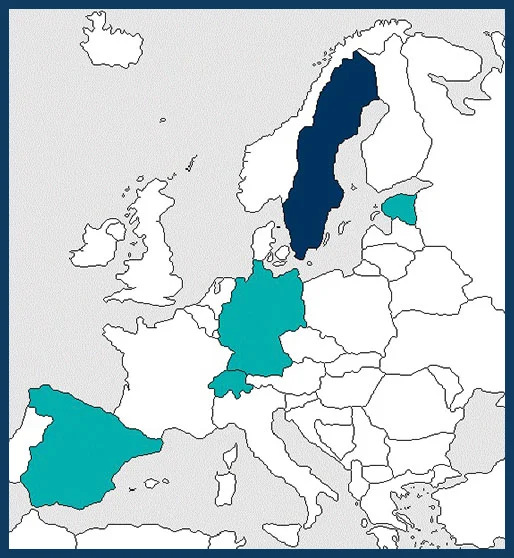12-2016 to 12-2019
€ 1,428,238
Prof. Dr. Klaus Birkhofer
klaus.birkhofer@biol.lu.se klaus.birkhofer@b-tu.de
Lund University, Lund, SWEDEN (Coordinator)
University of Tartu, Tartu, ESTONIA
Georg August University, Göttingen, GERMANY
Spanish National Research Council, Almeria, SPAIN
Research Institute of Organic Agriculture, Frick, SWITZERLAND

Soil organisms are pivotal for a range of ecosystem services in agroecosystems, such as nutrient mineralization, water infiltration, decontamination of soil and water and decomposition of organic matter. The provision of soil ecosystem services will in the future be impacted by changing climatic conditions, such as more and more frequent severe drought episodes. These major changes, and their impacts on soil biodiversity, ought to be further evaluated and studied. The SOILCLIM project addresses the pressing need to better understand the consequences of precipitation changes on soil biodiversity and ecosystem services in agroecosystems.
Through its implementation, the SOILCLIM project aims to:
• Determine the relationship between soil management, biodiversity and ecosystem services during simulated drought periods across a range of present climatic conditions;
• Identify how the relationships between soil management, biodiversity and eco- system services during simulated drought periods depend on organic carbon content of local soils and fertilisation strategy;
• Develop indicators that act as an early warning system for a reduction in soil ecosystem services under climate change.
To achieve these objectives, the SOILCLIM project will:
• Assess effects of simulated drought periods on microbial and faunal biodiversity;
• Assess effects of simulated drought periods on biological control (i.e. pest control), decomposition of soil organic matter and crop growth;
• Identify microbial and faunal indicators of changes in soil ecosystem services under drought conditions;
• Identify trade-offs and synergies between soil biodiversity and ecosystem services and their dependence on climatic and local soil conditions.
SOILCLIM will also implement specific activities to disseminate the project out- puts, to allow knowledge transfer and to involve stakeholders and policy-makers in the project. These activities will include:
• An initial workshop to discuss the details of the project with participating farmers and members of farmer associations
• Two dissemination meetings with farmers to discuss the identified indicators of changes in soil ecosystem services under drought conditions
• Annual farmer letters (fact sheets about major results)